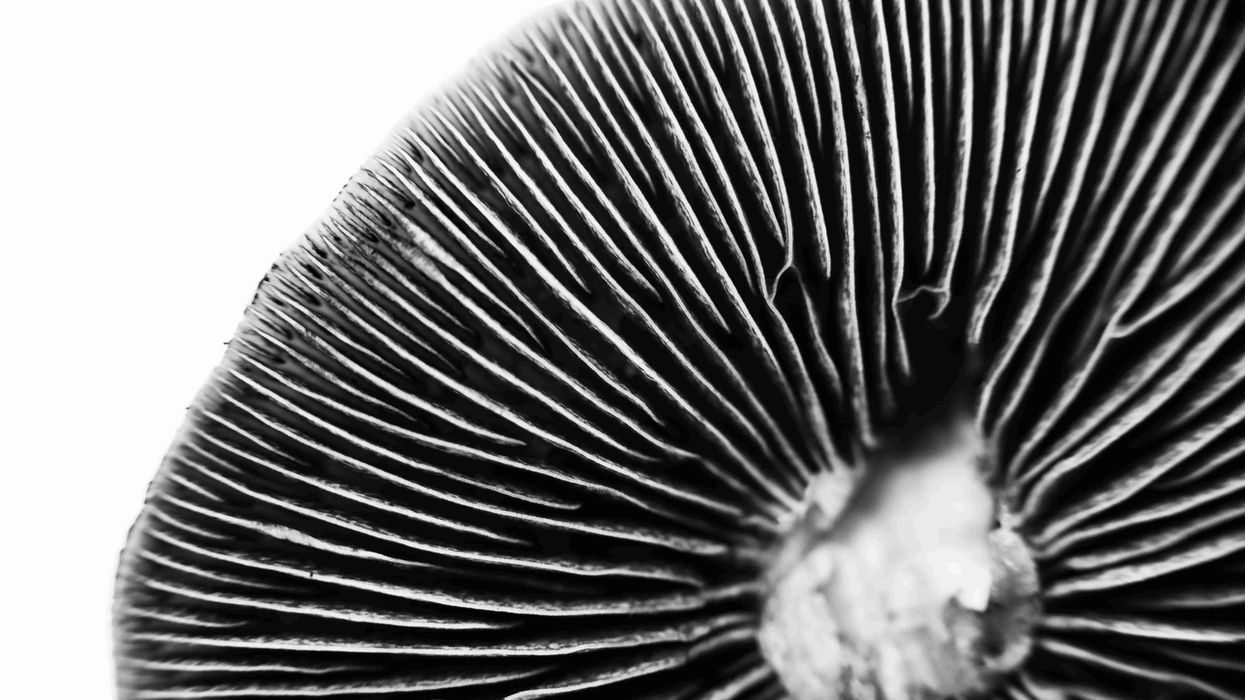Cannabis has been a disruptive influence as the world’s first illegal-yet-legal cash crop, in large part because of its medical therapeutic properties that have gained popularity among all age groups, especially seniors.
Cannabis today is about more than just a recreational substance. It’s medicine that has become a means of survival for some struggling with epilepsy, for example, or others who want to avoid the use of addictive opioids.
And among the cannabis headlines of legal and legislative efforts, which seem to advance the acceptance of cannabis while at the same time reinforcing obstacles, lies the story behind the re-emergence of mainstream psychedelics.
Psychedelics are medicine too, with a dark past as a recreational substance caused by recreational use of LSD in the ‘60s that helped stall out any research into their medical use until recently. But they are making rapid progress.
The Pathway to Acceptance
The legalized product future for psychedelics is being dreamed about now, with early ideas harkening back to similar cannabis consumer offerings. Toronto-based Silo Wellness developed a psilocybin nasal spray at their Jamaican lab for consumer micro-dosing. Revive Therapeutics, also based in Toronto, is developing a thin oral strip with a micro-dose of psilocybin that dissolves on the tongue.
As more research began to ramp up in the early 2000s, psychedelics’ pathway to acceptance has been aided by the work of cannabis industry advocates and activists who have addressed some of the same obstacles in cannabis that the psychedelics industry faces. Even some cannabis industry movers and shakers, notably Bruce Linton, the founder of the huge Canadian cannabis enterprise, Canopy Growth, have jumped into the psychedelics industry.
The biggest obstacle? Both psilocybin and cannabis (plus MDMA, LSD and peyote) are listed as Schedule I drugs which are enforced by the U.S. Drug Enforcement Administration (DEA), making business development tricky at best. Recently, the DEA wouldn’t even honor Washington state’s Right To Try law, designed for terminally ill patients, which has resulted in a lawsuit against the DEA.
But science is changing the discussion of how and why these substances are good for human health. Just look at the rise in cannabis research. According to the National Organization for the Reform of Marijuana Laws (NORML), since 2010, scientists have published over 23,000 peer-reviewed papers on cannabis, with the annual number of papers increasing every year. In 2020, researchers worldwide published a record 3,500-plus scientific papers on the subject of cannabis.
Cannabis has inspired more research on plant-based therapeutics in general over the last few years, with a rising group of similar psychedelic studies at New York University, UCLA, the University of Mexico, and Johns Hopkins University, to name a few.
Johns Hopkins is also focusing more research on psychedelics at the Johns Hopkins Center for Psychedelic and Consciousness Research with $17 million in funding for their research. An academia-related development like this is a good indicator of not only break-out commercial development to come, but legitimate medical research that backs it up.
Unlike cannabis research, which examines both the recreational and medical side of cannabis consumption, this research is strictly about developing the medical use of psychedelics, with some being granted breakthrough therapy designation by the Food and Drug Administration (FDA).
That gives stakeholders some cover for their investments, because psychedelics companies are biotech companies run by savvy business people which generally include medical directors with great credentials. Those factors have helped fuel dozens of psychedelics business startups as part of what will reportedly be a $7.6 billion global market by 2026.
Wall Street has also taken notice as more companies are being listed on NASDAQ and even the New York Stock Exchange (NYSE). For now, U.S.-based companies will have to wait for the feds to get out of the way—the U.S. DEA-enforced scheduling restriction on psychedelics doesn’t apply to other countries, so business development can proceed unimpeded, especially in Canada where psilocybin is listed as a Schedule III substance. In other words, psilocybin can be authorized for clinical trial and research in Canada.
For example, in June, Berlin-based ATAI Life Sciences became the third biotech company focused on psychedelics to list on NASDAQ, following MindMed, out of British Columbia, and Compass Pathways, headquartered in Manchester, England. Field Trip, a psychedelics-assisted company based in Toronto, listed on NASDAQ in July.
These companies are solidly credible, with some heavy hitters on their executive staffs or boards. Compass just hired Guy Goodwin, emeritus professor of psychiatry at the University of Oxford, as their chief medical officer. And the former head of psychiatry at the FDA for 29 years, Thomas Laughren, is now on the clinical advisory board of Toronto-based Cybin, a biotechnology company focused on psychedelic therapeutics. In August, Cybin became the first psychedelics company to list on the NYSE.
Dana Larsen, a longtime cannabis advocate with a dispensary in Vancouver, is advocating for magic mushrooms as a way to treat mental illness. He told the CBC that psilocybin mushrooms “really remind me now where the cannabis movement was in maybe the mid-'90s. There's just starting to be increasing public awareness about the tremendous medicinal benefits of using these mushrooms."
The Cannabis Jump-Start
The early days of cannabis decriminalization and legalization movements were fraught with tough legislative battles. Internationally, these battles are still underway in more places than not, however the road thus far paved has had the effect of smoothing over psychedelics’ entry as another illicit substance ready to begin the process of legalization.
For better context, cannabis was first decriminalized in the U.S. in Oregon in 1973, then recriminalized in 1997, then legalized in the state in 2014. Cannabis legalization first appeared on a ballot in California in 1972, but it took until 1996 for the state to legalize just medical marijuana—legalization of adult use followed in 2016.
And the fact that over 67 percent of all Americans today live in a jurisdiction with access to medical marijuana is a major plus for any psychedelics industry growth outlook.
Denver, Oakland, Santa Cruz, and Washington D.C. have decriminalized psychedelics. Over the last two years, Ann Arbor, Michigan; Somerville, Massachusetts; and Cambridge, Massachusetts have all decriminalized the possession, use, and propagation of psychedelic plants and fungi at the local level.
California’s legislature is currently moving an amendment about decriminalizing “certain hallucinogenic substances” through the legislative process. Vermont, Iowa, New York, Chicago and Texas, are working on their versions of decriminalization as well.
Most notable needle-moving news about legalizing psychedelics in the U.S. happened when Oregon legalized psilocybin in November, 2020. And the results of a national survey released in July found over 70 percent of Canadians are in favor of legalizing psilocybin.
The Legalized Product Future
Shlomi Raz, the founder and CEO of Eleusis, a life science psychedelics therapy company headquartered in London, believes that there are many more discoveries to come that would enable control of psychedelic formulations, helping people with mental health issues but also with things like inflammation and chronic pain issues.
“The clinical development of cannabidiol (CBD) into an FDA-approved therapy is an inspiring example of how traditional medicines can be transformed into modern ones through advanced pharmacological techniques that ensure patient safety. The time has come to make psychedelics, once seen as “out there” substances, mainstream and boring again,” Raz wrote in an opinion column.
As decriminalization and legalization of psychedelics continues, Michael Pollan, a well-known writer about psychedelics and other plant-based substances, urges caution by drawing a distinction between cannabis and psychedelics in a New York Times op-ed piece:
“In the case of psychedelics, decriminalizing these powerful compounds is only the first step in a process of figuring out how best to safely weave their use into our society. The main model we have for resocializing a formerly illicit drug is the legalization of cannabis, now the new normal in 18 states, and many in the cannabis world look to psilocybin as the next cannabis. But the prospect of magic mushrooms being commercialized like cannabis—advertised on billboards and sold next to THC gummy bears in dispensaries—should fill us with trepidation.”
Need a little more Bluntness in your life? Sign Up for our newsletter to stay in the loop.
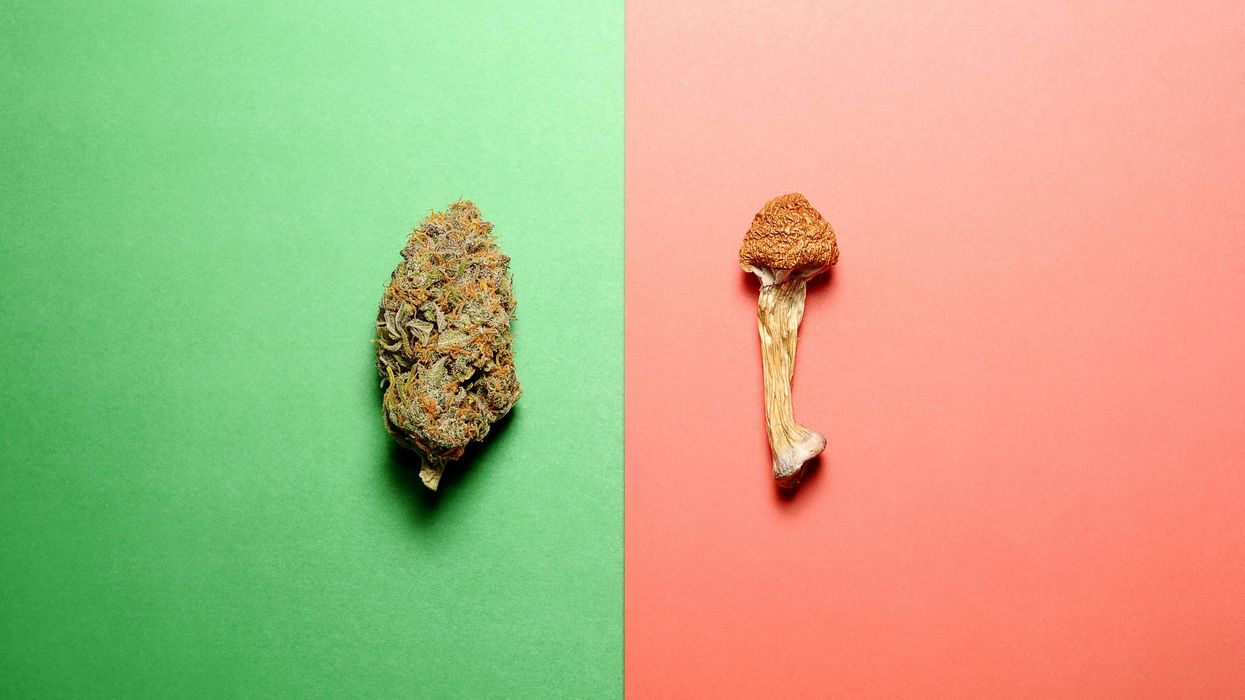


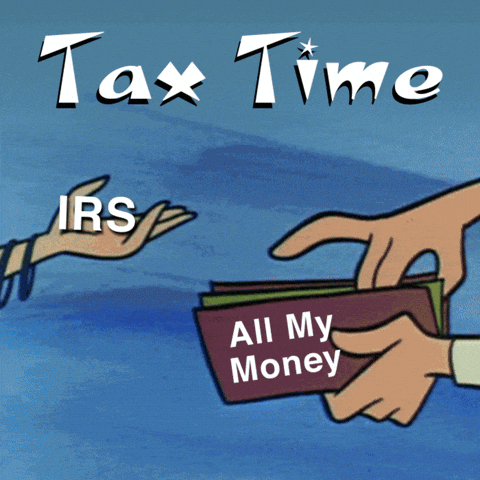







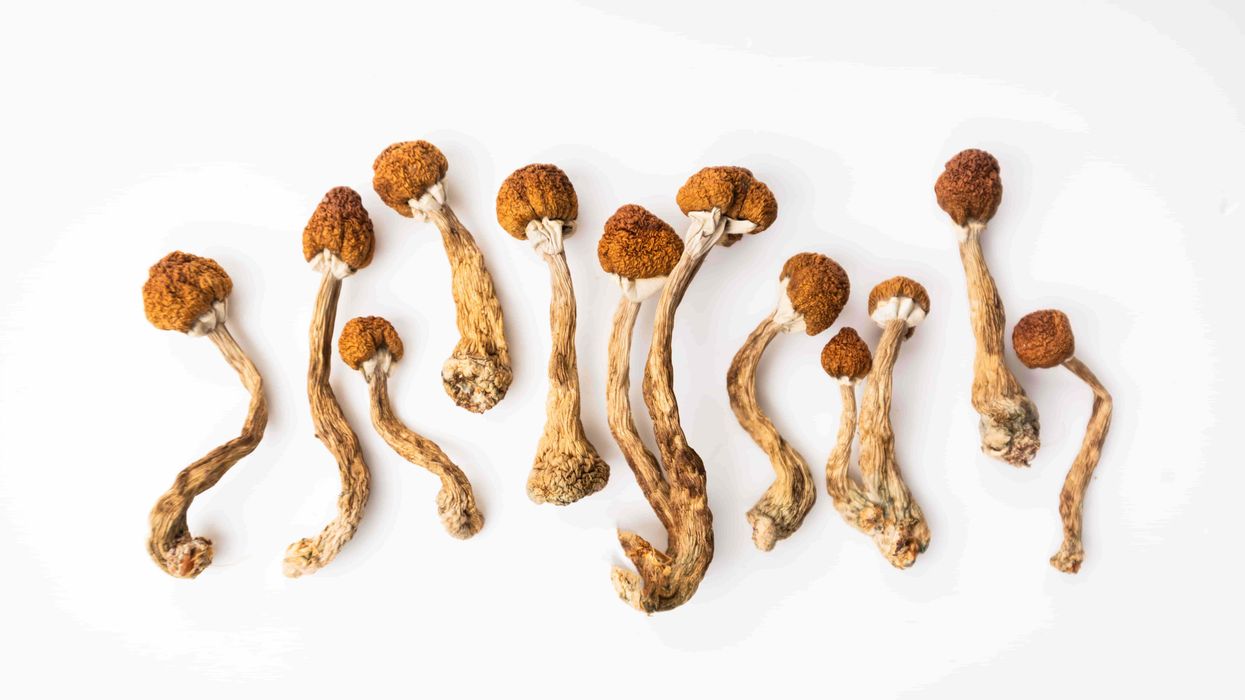




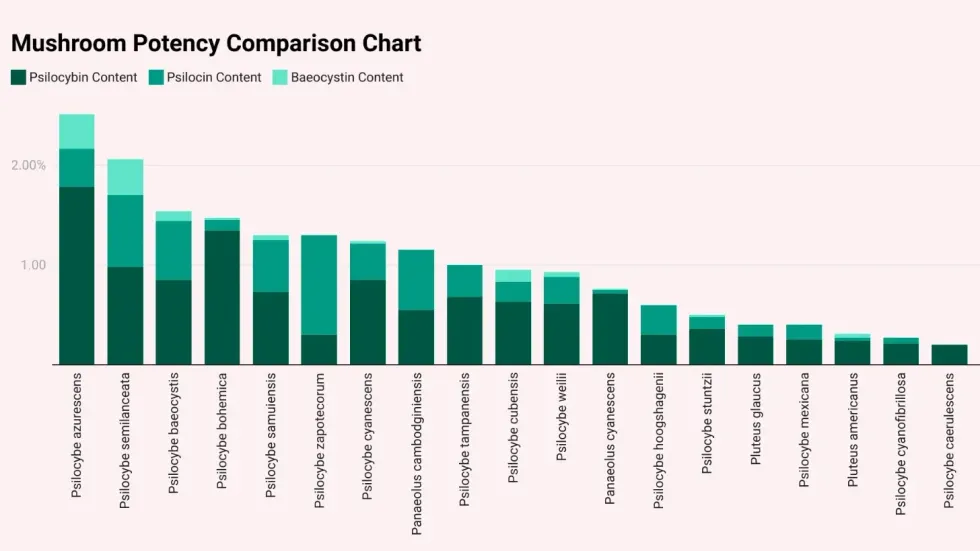 List of the strongest mushroom speciesTripsitter
List of the strongest mushroom speciesTripsitter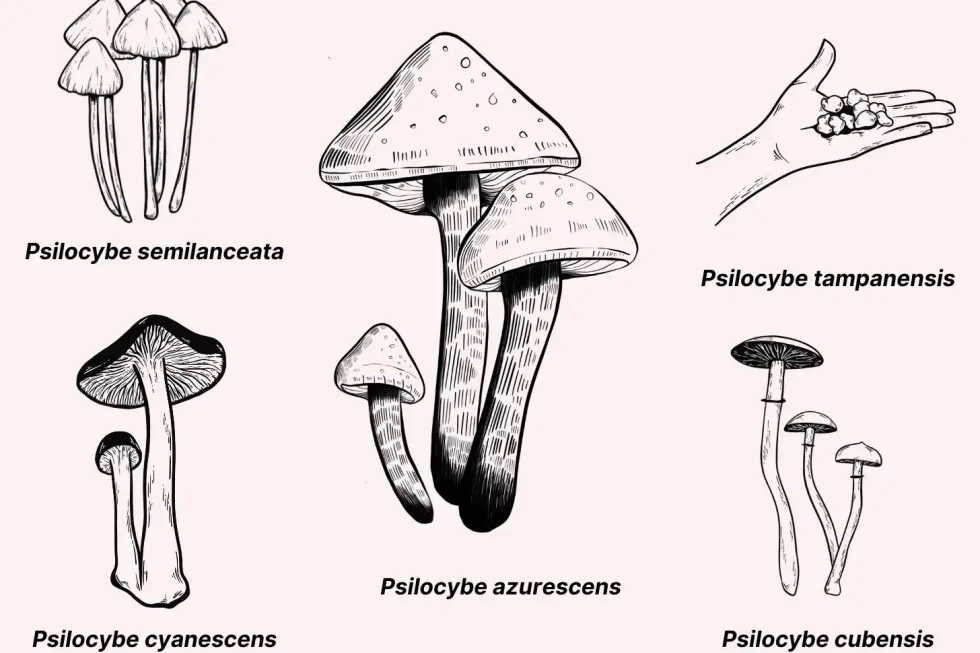 PsilocybeTripsitter
PsilocybeTripsitter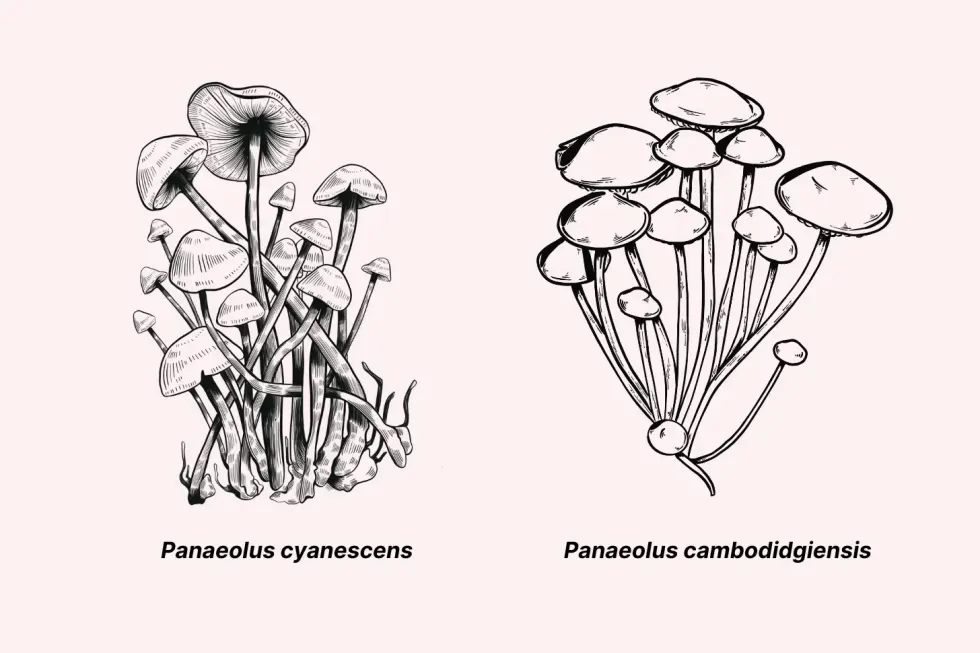 Panaeolus: This species contains (at least) 13 psychoactive members. They’re generally considered weaker than Psilocybe mushrooms and produce significantly lower yields when cultivated.Tripsitter
Panaeolus: This species contains (at least) 13 psychoactive members. They’re generally considered weaker than Psilocybe mushrooms and produce significantly lower yields when cultivated.Tripsitter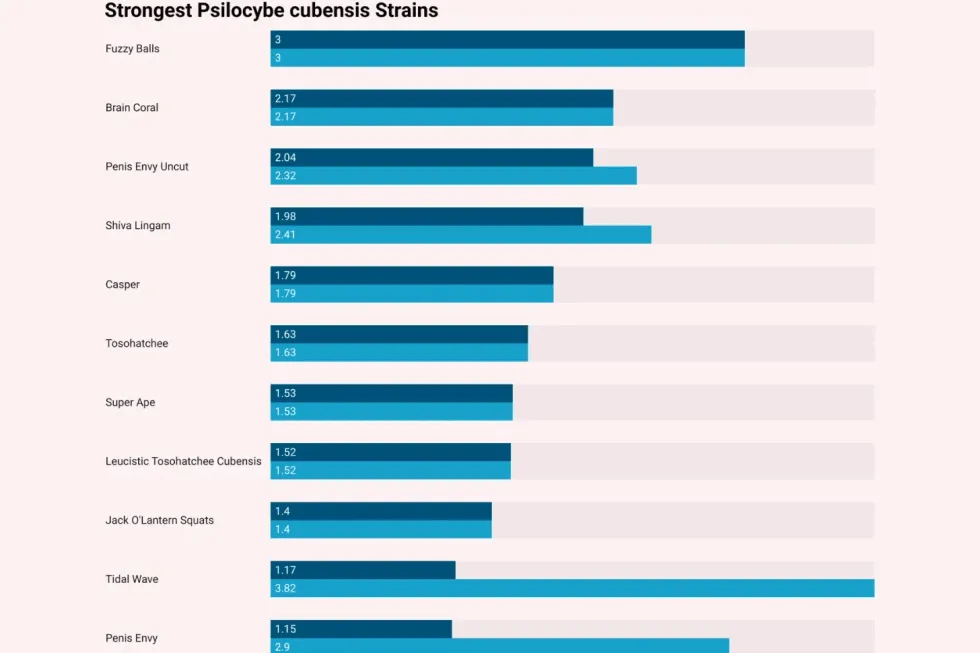 List of the strongest magic mushroom strainsTripsitter
List of the strongest magic mushroom strainsTripsitter